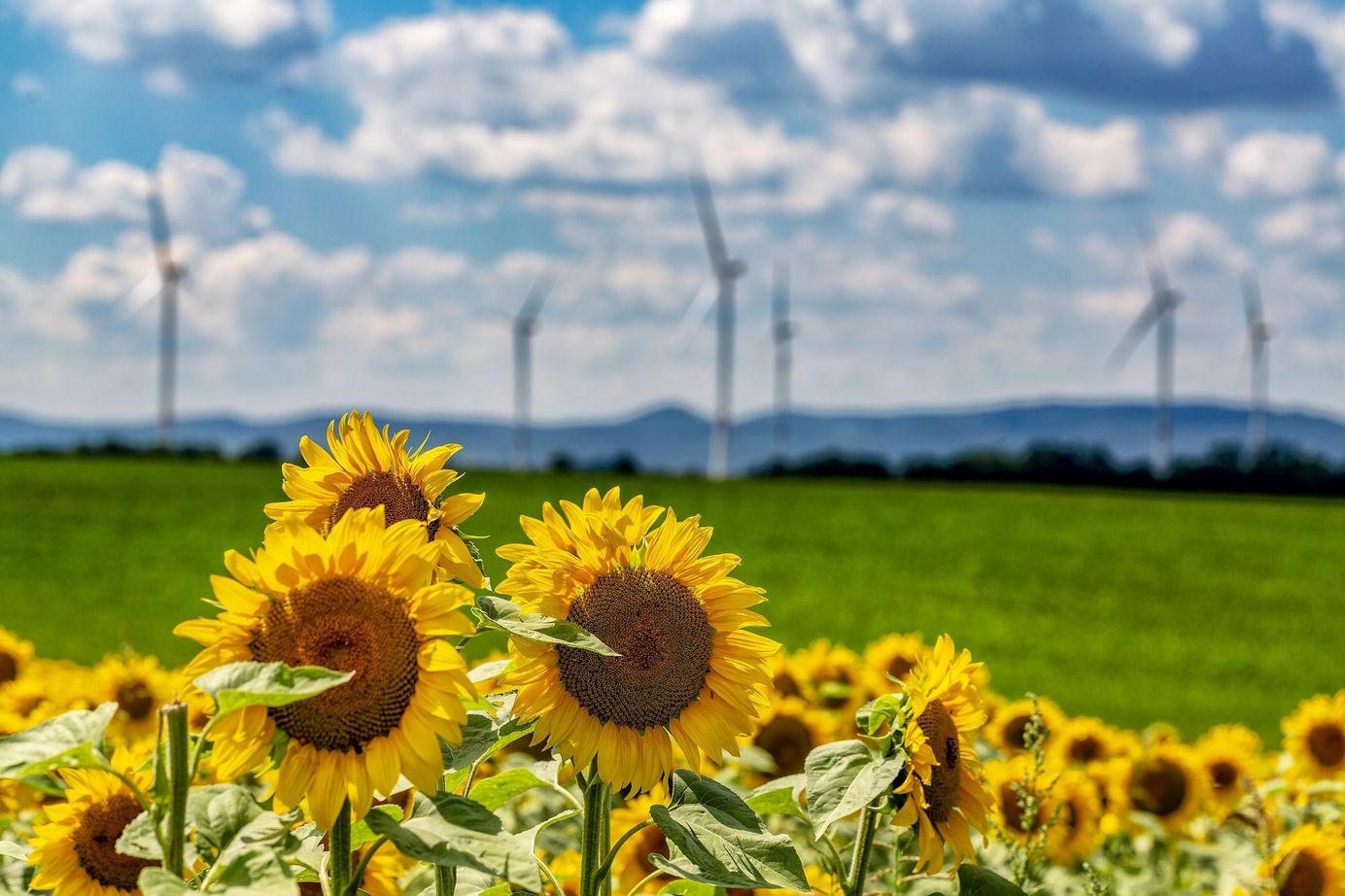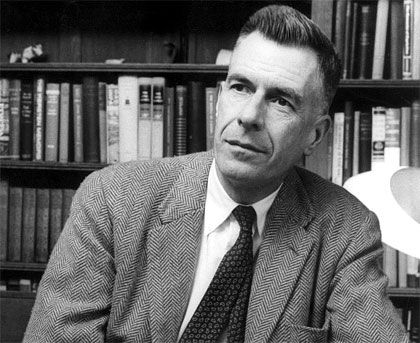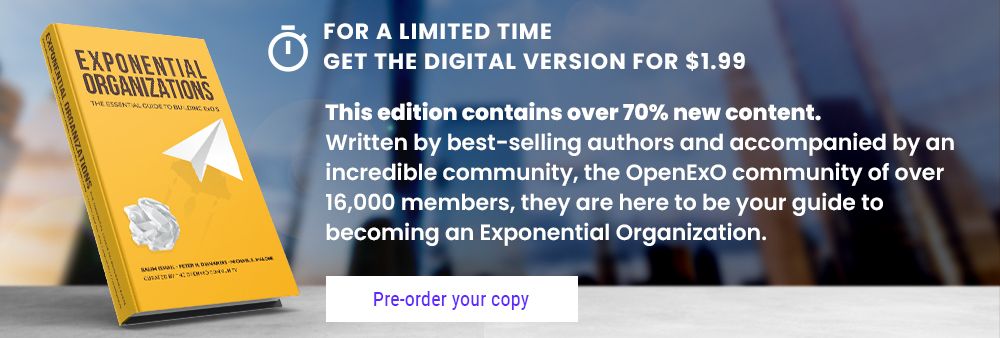
Shift to Abundance
In Economic History, the resource was always scarce, but in the last decade, the "Abundance" is the concept that for many people have generated and inspired the new paradigm of the Exponential Organizations world.
Abundance is not something we acquire. It is something we tune into (Wayne Dyer).
Brief Introduction:
A few months ago I received a Master's Degree in Economics and Management after a thesis on Exponential Organizations, so this is the first excerpt of my work on ExO insights. I decided to start talking about the theme of Abundance, as it is the engine of the exponential growth model, the ExO in fact leverages the abundance present today to grow disproportionately large compared to competitors.
The abundance is the concept that for many people have generated and inspired what I am going to explain to you, the new paradigm of the Exponential Organizations world. Abundance can be considered the “Headbone”, or the “essence” of the exponential model. This concept was developed by Peter Diamandis, the founder of Singularity University….but what does exactly “abundance” mean?
Abundance represents an enthusiastic vision of what is to come, according to Diamandis "Humanity" is now entering a period of radical transformation in which technology has the potential to significantly raise the basic standard of living for every man, woman, and child on the planet" (Diamandis, P; Kotler, S, 2012).
Peter Diamandis himself explains his book what abundance means, in the first chapter of his book written with Peter Kotler he started the narration by mentioning an emblematic episode, namely the discovery of aluminum by the Roman Empire, that Emperor Tiberius kept secret for the fear that his wealth would be depleted. Aluminum stayed unknown to people until the 19th century and at the end of the same century would be affordable for everyone thanks to the discovery of electrolysis. This episode teaches us that technological innovations lead to the liberation of resources, transforming into abundance what was previously considered scarce, but in reality was not, was just inaccessible.
In previous centuries, starting from Malthus there was the fear that the growth of population would lead to the exhaustion of the resources available to the population, famous were some of his phrases within his theory of the law governing population, and its effect on wages: "the particulars of the Irish population are not well known. I will only say that the use of potatoes has greatly increased during the last century. The low price of potatoes, the small amount of cultivated land required in average years to feed a family, the ignorance and depressed condition of the population, which impels them to satisfy their own inclinations without any other prospect than immediate subsistence, have encouraged marriages to such an extent that the population has far exceeded the limits of the present industry and resources of the country” (Galbraith, 1987).

Not only did Malthus study in depth the theme of scarcity but a great contribution to scarcity in literature was given by Jean-Paul Sartre in the “ Critiques of Dialectics”. The Sartrian work acquires a new meaning today because of its theoretical consequences that cannot help but reflect: the condition of scarcity indicates the non-centrality of human existence within nature. The scarcity itself is presented as the denial of man by of the Earth: nature is not there at man’s disposal, and man makes use of it by removing from nature itself the means of subsistence and reproduction of its living conditions. Moreover, the relationship with nature, which being necessarily conflictual cannot but imply an intrinsic tension, is transfigured in the relations between men: the indifference of nature towards man and the play of constraints to which man subjects matter, are reflected in the constraints that man imposes. The scarcity represents, on the one hand, the obvious key to many human conflicts (such as the contention for the possession of a useful and desirable resource carried out by two groups in struggle), on the other, is extended by Sartre to the genesis of the entire human conflict, as if it represented a sort of great removal, an event capable of presenting itself as transfigured.
These theories, although very intriguing, are to be considered nowadays by now obsolete, the period in which we live today is as previously explained the period of abundance (Caddeo, 2011). At present, there is an abundance of communication and information thanks to the advent of ICT infrastructure. this abundance became even more evident and pervasive in times of pandemic, which limited or even canceled our sociality, but thanks to the abundance of information we were able to keep in touch with family and friends. Since we still live in a world of economic and social inequalities, we live in a world where many areas of the planet poverty rates are very high, it arises spontaneously to wonder: what is really this abundance narrated by Diamandis? Of course, it is Diamandis himself who clarifies the doubt in his manual, specifying that "Abundance" is not to indicate life in unbridled luxury, but much more simply means having the possibility of access to basic goods.
As I explained, at the beginning we are entering an era characterized by a different paradigm, and what is happening is due to the very concept of abundance which itself represents a totally different paradigm and which is totally detached from the theories of the past on scarcity, previously analyzed. but what are the basic necessities? Peter Diamandis explains that these goods can be explained through the Pyramid of Maslow. At the base of the pyramid, we find the needs without which abundance would not be possible, namely physiological needs: water, food, and shelter. Providing these goods to underdeveloped populations will trigger a vicious circle so that even the richest populations will benefit from it. At the second level of the pyramid, there are: energy, education, information /communication, of this energy is certainly the most important, in particular the electricity that allows preserving ecosystem service and allowing also that conflicts man nature cited by Sartre are avoided.
At the top of the pyramid, we can find health and freedom. In the light of all this, why do many people fail to grasp this abundance? The authors of the manual explain that it depends on one’s perception of what is happening in the world. often and willingly we are overwhelmed by a media bombardment, often characterized by news of "blood " and death. These situations make us particularly negative or give us the belief that we are in constant danger. All of this, combined with cognitive bias, doesn’t allow us to see the world in abundance (Diamandis, P; Kotler, S, 2012).
Obviously, the abundance has positive effects also on the business world, in fact, according to Salim Ismail, Francisco Palao, and Michelle Lapierre in their book entitled “ exponential transformation” traditional business models are based on scarcity, where value comes from selling a product or a service that is limited in supply. Exponential technologies, however, generate an abundance of everything. Peter Diamandis refers to what he calls 6ds to describe a chain reaction of technological progress that leads to both upheaval and opportunity. Once something is digitized, more people have access to it. Everyone has access to powerful technologies, giving individuals and entities the opportunity to create the next big breakthrough. entire industries are being impacted as problem spaces shift to new models based on an economy of abundance. When products or services become available through digital means and shed their physical restrictions, they can be produced and distributed at scale become abundant at zero marginal cost (Ismail, S; Palao, F; Lapierre, M, 2019).
Literature review:
Caddeo, F. (2011). Scarcity of resources and theory of human organization in the critique of dialectics. Metabasis, 1-14.
Diamandis, P; Kotler, S. (2012). Abundance. Nytimes.
Galbraith, J. (1987). History of Economics.
Ismail, S; Palao, F; Lapierre, M. (2019). Exponential transformation.

ExO Insight Newsletter
Join the newsletter to receive the latest updates in your inbox.








